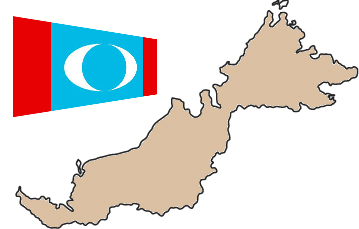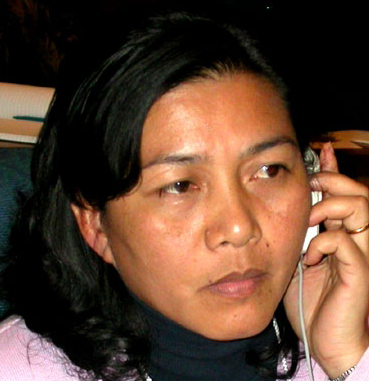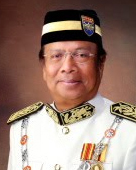
RECENTLY, just before the Balingian by-election, four Parti Keadilan Rakyat (PKR) national leaders were denied entry into Sarawak. In the past, other opposition politicians and civil society activists have also been denied entry into the state in the run-up to elections. Dr Wong Chin Huat, who is among those banned from entering Sarawak, tells The Nut Graph the original purpose behind giving Sabah and Sarawak autonomy over their immigration controls, how this power is being abused, and whether it’s feasible to maintain such laws.
TNG: What is the original intention of the Malaysia Agreements to give Sarawak and Sabah autonomy over their immigration and to determine who can or cannot enter these states?
This power for Sabah and Sarawak is provided for under Section 66 of the Immigration Act. The onus is on a person to prove his or her right to enter the states. If you do not belong to either state, or are not a member of the federal or state government, a judge of the superior courts, or a federal or state civil servant, then your right to entry depends on whether you are given a pass by the state government.
Technically, a person who is deported is a person who is denied the entry pass. However, Sections 67 and 68 respectively give an explicit provision for one’s right to entry as an “exercise of political right” and “for purposes of federal government”.
The denial of entry for politicians and political activists – including I, who have been banned from entering Sarawak since April 2011 – is outright illegal and an abuse of power.

The provision is meant to prevent economic transmigration – the influx of economic migrants from more advanced regions like Malaya and Singapore into Sabah and Sarawak, which would take away job opportunities from the locals. It’s a form of protectionism, which I think is fully justified. This is a problem in countries like Indonesia and China, where minority regions experienced influx of workers from majority regions.
How do we reconcile this privilege of immigration autonomy with Article 9 of the Federal Constitution, which guarantees every citizen of Malaysia the right to move freely throughout the federation?
The restriction can be compared to restriction of a West Malaysian practising law or some other profession in the two states, or the quota for the Malays and East Malaysian Natives under Article 153 of the Federal Constitution. This constitutional provision for our civil liberty and equality is not absolute.
However, we must remember that this power over immigration control has been abused by the Sarawak and Sabah governments when they use it to deny entry to politicians and political activists. The entry ban by those state governments is an outright abuse of power and violates both Article 9 (freedom of movement) and Article 10 (freedom of speech, assembly and association).
Also, such restrictions are not meant to be permanent. After all, protectionism through immigration control is good only for producers (including labourers) but bad for consumers. When competitors are kept out of the doorway, goods and services will be more expensive and may be of inferior quality. The immigration control will not be popular one day when Sabahans and Sarawakians are richer and start eyeing better products, more than employment, in their home state.
Give us a rundown of the types of people Sabah and Sarawak have denied entry to, and what can such a list tell us about how the states are using this power?

As I’ve observed, two types of people fall prey to the abuse of Immigration Act and violation of Section 67: politicians and political activists. A Suhakam commissioner, Jannie Lasimbang, was denied entry long before becoming a commissioner after she took part in an earlier fact-finding mission on the plight of the Penans.
For the Balingian by-election, we have Parti Keadilan Rakyat politicians being banned from entering Sarawak. In 2011, Sarawak’s last state elections, those banned were civil society activists including Datuk Ambiga Sreenevasan, Maria Chin Abdullah, Syed Ibrahim Syed Noh, Ong Boon Keong, Steven Ng and me.
If you really want to find an economic reason to justify the ban on people like us, it’s probably this: our “legitimate political activity” (the phrase used in Section 67) may cause unemployment of some politicians.
Today, who benefits from this immigration autonomy? What’s in it for the citizens of these two states?
Interestingly, we have not heard of West Malaysians being denied entry for taking up jobs or setting up businesses in Sabah and Sarawak. So, no one has apparently benefited from the prevention of economic transmigration.
On the other hand, when political activism is curbed by banning politicians and political activists from outside the state, politics becomes undercompetitive. And this is, of course, good for underperforming and corrupt politicians.
Some Bornean nationalists praised Sarawak’s new chief minister, Adenan Satem, for evoking his power to ban West Malaysian politicians. I really don’t know how people – if they themselves are not cowards – can be proud of a coward: you control the entire state apparatus, yet you don’t have confidence to engage your opponents and critics in the open!

If you think that politicians and political activists from other states are evil people who are coming in just to cause trouble in Sarawak, aren’t you capable of exposing their lies and propaganda with fact, reason and logic?
What would it take to remove immigration autonomy in these states, or at least reform it so that it’s not abused? Do you think it’s something the ordinary citizens of Sabah and Sarawak would want?
To prevent this law from being used arbitrarily and irresponsibly, the exercise of this power to deny entry passes should be administered by an independent body, with an avenue for redress. This would ensure the state has the power to exercise control – when necessary – but also prevent cowardly politicians from abusing it.
Is it logical and is it for the overall good of Malaysia, in this day and age and at this juncture of the country’s development, to keep this as the status quo?
Despite being a victim myself of the Sarawak government’s abuse of its immigration control power, I am all for preserving this power for the two states – but, don’t abuse it, please. I believe this ban would be done away with someday when Sabahans and Sarawakians feel confident and secure enough. No one should take away this right of East Malaysians until they feel comfortable.
My general position on the Malaysia Agreement is that we must respect the intention behind those compromises in 1965. But none of these are really cast in stone. If Sarawak and Sabah can be given a better deal, why not? ![]()
Wong Chin Huat is a political scientist by training and was a journalism lecturer prior to joining the Penang Institute, a Penang government think tank. If readers have questions and issues they would like Wong to respond to, they are welcome to e-mail editor@thenutgraph.com

